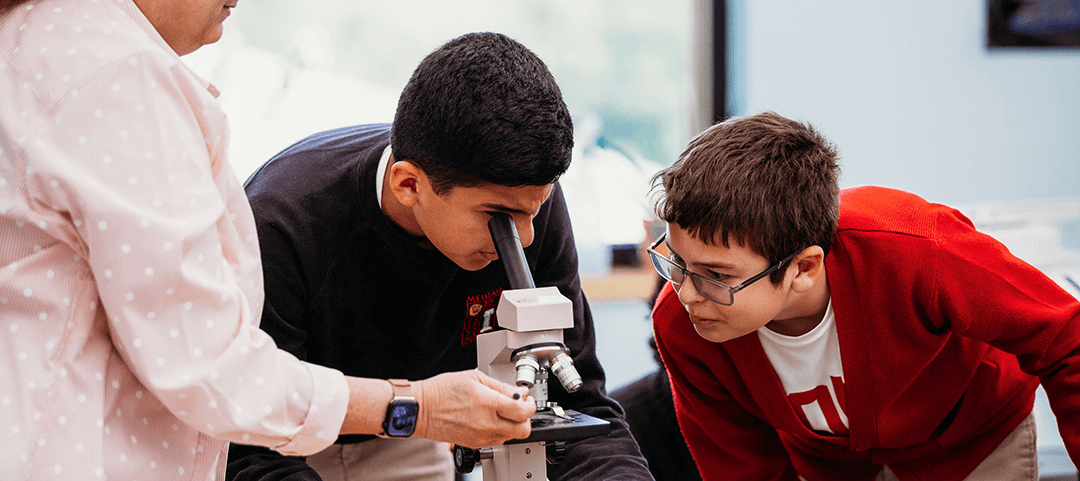The logic or dialectic stage is the next stage in the Trivium, a grouping of three levels of brain development that has been used as a model of education for millennia. At some point in late childhood or early adolescence, student’s brains begin to wrestle with the “why’s” and “how’s” of content. They begin to make connections, see correlations, and understand cause and effect.
In the School of Logic at MLCA, students are challenged to hone those new processing skills and build upon the foundation that has been laid in the grammar stage. Both formal logic (including the study of the syllogism) and informal logical fallacies are studied, as students begin to master the skill of reasoning and argumentation.
The question “Why Latin?” seems warranted. After all, Latin is a dead language. Why do we bother teaching our children something that is no longer in use? The answer is simple: although Latin is no longer in use as a free-standing language, it is very useful in learning and using the English language and other languages (especially French and Spanish). It also holds a place in the liturgical background of the church.
Many words (over half of the words in the English language) have Latin roots. Latin vocabulary is a decoding tool for English vocabulary. The long, difficult words in English are usually the ones with Latin roots. Students who have the Latin meanings well in their command starting in third grade have the advantage of using those meanings to decipher the difficult English words when they start to encounter them in the seventh and eighth grades. This advantage has proven itself in above average verbal standardized test scores by students of Latin.
In addition to vocabulary, Latin assists students in understanding the grammar of English and other foreign languages. As a “dead” language, the rules governing Latin do not change, making it a perfect first language to study.
A Latin education finds an additional use within the liturgical background of our church. Our youth are able to access our liturgy in its original language. As the children sing “Agnus Dei,” “Pax Domini,” and “Gloria in Excelsis Deo,” the language hardly seems dead.
By the third grade, students have a good grasp of the English language and reading skills, and yet they are still in the grammar stage – ready to ingest knowledge. They attach quickly to rhymes, chants, and jingles. Latin fits well into this learning method with chants of amo, amas, amat…







